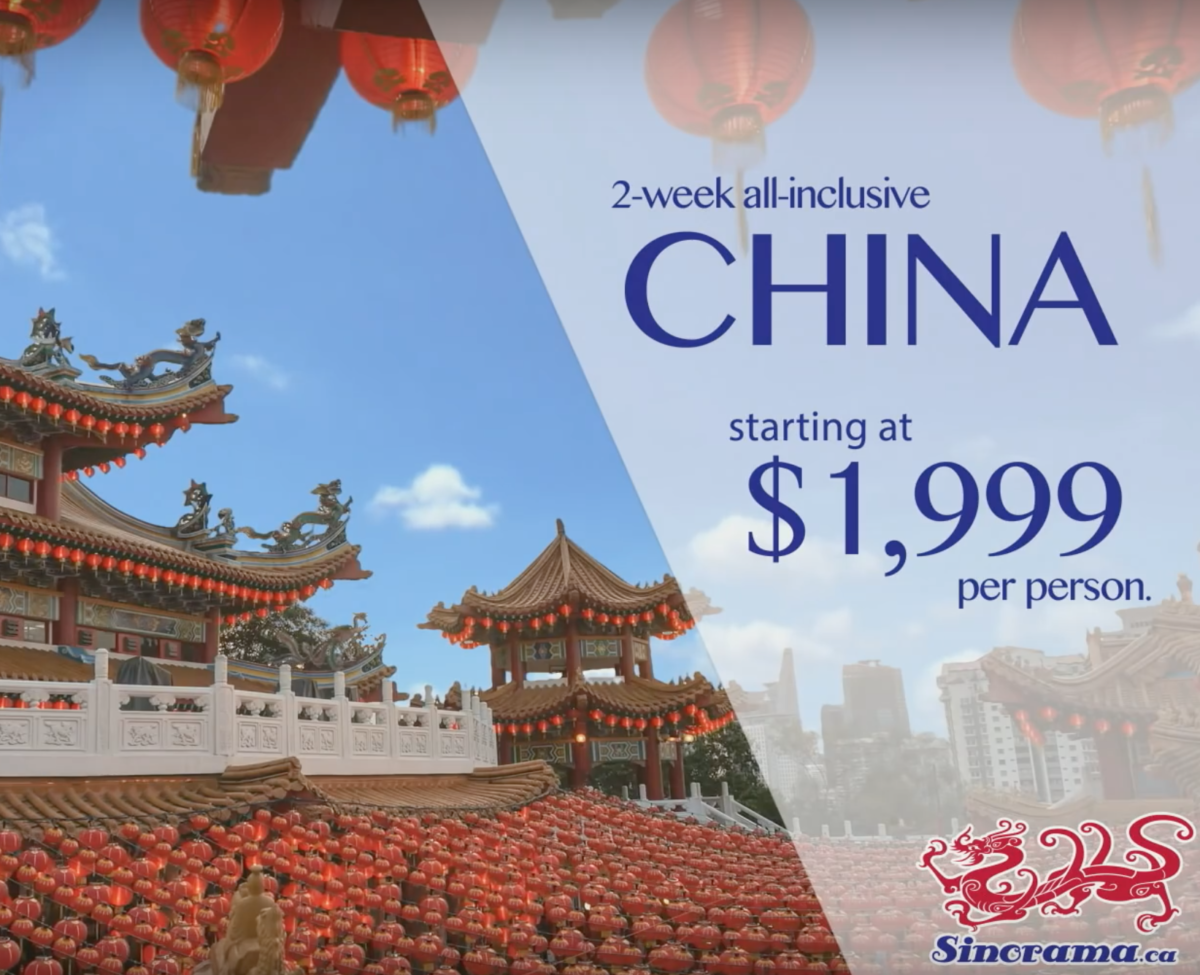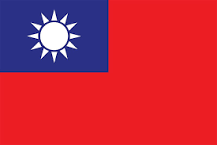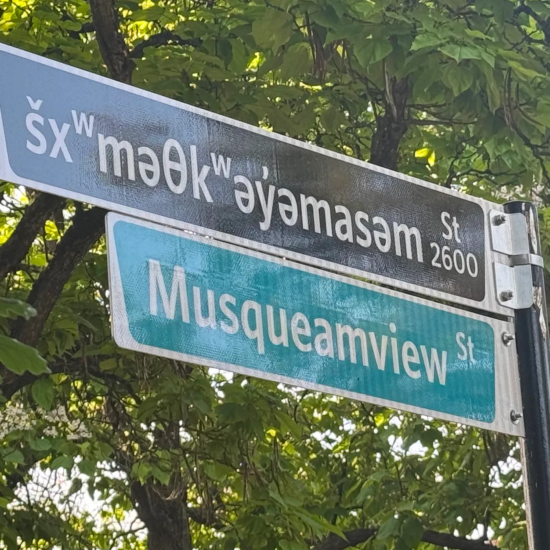
Bob Mackin
A Vancouver travel agent says the closure of China tour wholesaler Sinorama Holidays Inc. could be the biggest failure in the Canadian travel industry since the fall of 2001.
“I haven’t seen anything like this on the vacation side since Canada 3000 [Holidays],” said Travel Best Bets CEO Claire Newell. “A lot of those people won’t get their money back, they may have saved up for years, and don’t have the room on their credit card or money in the bank.”
In late July, Quebec’s consumer protection authority placed Sinorama’s operation there under trusteeship. It voluntarily ceased operations in Ontario on Aug. 8, the same day that Consumer Protection British Columbia froze the bank accounts and suspended the licence of its Richmond operation, which shared an office building with a currency exchange business on Westminster Highway, east of No. 3 Road.
A letter to chief operating officer Xiwang Wang said Sinorama did not have enough working capital to operate as a travel agency. Sinorama Corp., which is traded in the U.S. on the loosely regulated Pink Sheets bulletin board, reported a $9 million working capital deficit for 2018’s first quarter.

Martine Jing Wenjia, CEO of Sinorama (YouTube)
“We believe that travellers may be at risk of not getting the travel they paid for,” said the CPBC website. CPBC recommended travellers confirm their bookings have been paid for, contact their credit card and/or insurance companies, and get copies of contracts, receipts, itineraries and proof of payment.
Newell said it is another reminder to never pay for travel by cash. Those who paid on credit cards can make claims and authorities in B.C., Ontario and Quebec have funds to help compensate travellers left high and dry.
Newell said Sinorama had been offering bargains on tour packages to China while spending heavily on national advertising in Canada.
“This deal was thousands of dollars cheaper than I could come close to and my price is priced with fair, but lower, margins,” she said.
Indeed, the company’s financial reports show advertising expenditures had skyrocketed from almost $1.45 million in 2015 to $6.43 million last year. At the same time, it was cutting prices.
“The 5.6% reduction in revenue-per-customer reported for Asian tours in 2017 reflected our efforts to expand volume by offering very competitive prices,” said a Sinorama financial disclosure. “These reductions in price were the result of a calculated decision to promote the Sinorama brand as a location for better service and lower prices than that offered by competitive travel agencies.”
Sinorama grossed $98.3 million but reported a net $571,447 loss in 2017, which was lower than the $5.6 million lost in 2016. Asian tours accounted for 77% of the business. It said it sold packages to 37,281 customers in 2017, up 32% from 2016.
There was no answer at the company’s offices in Montreal, Markham, Ont., or Richmond on Aug. 13.
Sinorama Corp. was originally founded in 2005. It incorporated in 2016 in Florida and had a complex ownership structure.
The Sinorama Tours Ltd. holding company was organized in June 2015 in tax haven Samoa and includes Vacances Sinorama Inc. of Quebec and Sinorama Voyages of France.
Sinorama Tours owns two-thirds of Vacances Sinorama through Simon Qian Voyages, a wholly owned subsidiary, and 51% of Sinorama Voyages. The other one-third of Vacances Sinorama is owned by Sinorama chairman Qian Hong, who is married to Sinorama CEO Martine Jing Wenjia. Minority shareholders of Sinorama Voyages are Yang Ming (39%) and Zhao Hongxi (10%), the chief financial officer of Sinorama. Zhao was the highest-paid executive in 2017 at $71,446.
Jing owned 54.33% of the parent company and 131 shareholders owned the rest. The company reported employing 167 people at year-end.
Through the first quarter of 2018, Sinorama had already spent $2.6 million on advertising, but reported a $2.7 million net loss on $15.9 million revenue.
“The primary factors affecting our working capital deficit at March 31, 2018 include customer deposits of $38,388,443 representing prepayment by customers of tours they have booked, partially offset by our prepayment and deferred expense asset totalling $20,820,412, mostly representing our prepayment to vendors for those tours,” said the quarterly report. “Customer deposits exceeded our prepayments because we generally require customers to deposit the full cost of a trip some time in advance of departure, but our vendors do not require us to pay in full until the customer disembarks from the tour.”
Its main vendors were Flash Travel, Sinorama International Travel, Hubei Sinorama, Chongqing Yangtze Gold Cruise Co., Ltd. and Chongqing New Century.
Sinorama trades under the SNNN symbol and shares closed at 87 cents on Aug. 13, up from 33 cents last week.
- Did you, or someone you know, book with Sinorama? Did you work for Sinorama? Are you a supplier to Sinorama? Contact theBreaker.
Support theBreaker.news for as low as $2 a month on Patreon. Find out how. Click here.










